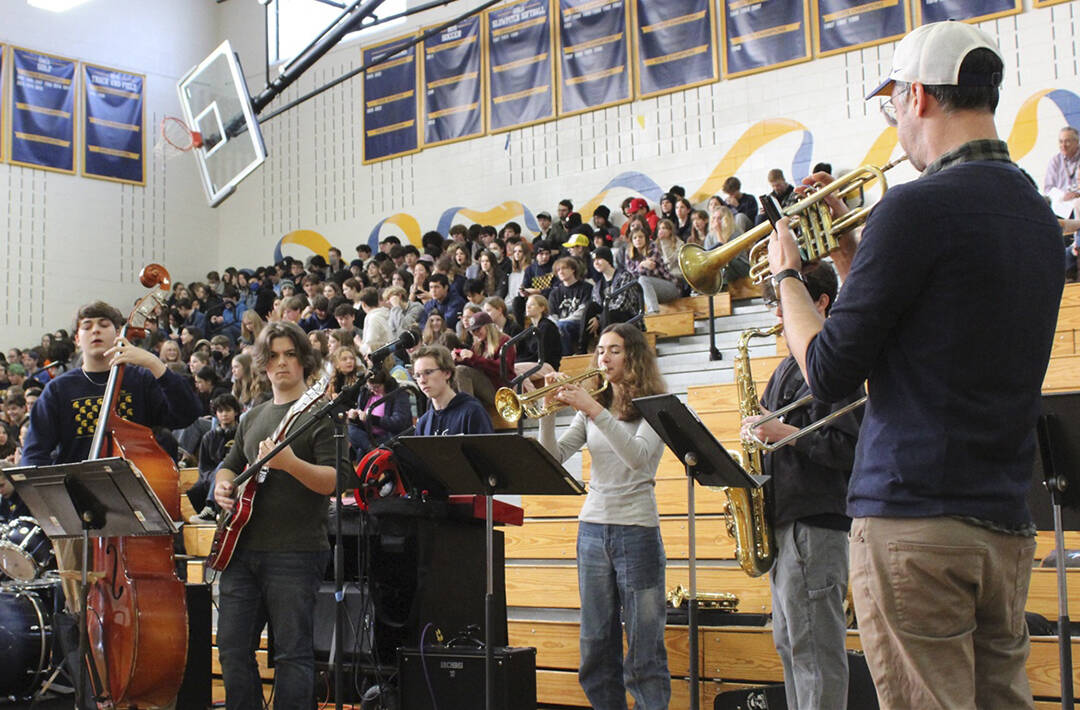Think back to the trials and tribulations of grade school. Was there ever a time that you missed a class trip, went without lunch or opted for second-hand sports gear because you couldn’t afford it? Where would you be if you had that opportunity?
A burgeoning youth service created by the Bainbridge Community Fund is making that connection.
The Youth Experience Support (YES) fund is a Bainbridge Island-exclusive grant program designed for students of all grade levels to access one-time financial assistance for expenses related to school, extracurricular activities or quality of life. Kids and caring adults, including teachers, can directly request funding through either Helpline House or their high school counselor for any specific need — from winter coats to yearbooks.
It’s that simple — but it’s meant to be as low-barrier as possible, explained Maria Metzler, director of Helpline House.
“We have lots of ways we help students, but to round out the experience of being a youth [on Bainbridge], we needed a fund that was more flexible,” she said. “We already had the infrastructure, so the YES fund slipped right as a complement to the services we offer.”
YES joins a suite of other youth support programs on the BI, including mental counseling, athletic and academic scholarships, food pantries, free school supplies, and birthday and holiday resources, along with a foundation for the BI School District.
The program is ancillary to those social services, said Jim Hopper, director of the Bainbridge Community Foundation, which allocates funds for YES. The key difference, he and Metzler agreed, is its flexibility.
So far, according to the 2021-22 report, YES funding has covered student’s prom tickets, caps and gowns, club dues for Model United Nations, Driver’s Education, athletic gear, winter clothing, cooking supplies, sleeping bags, books for university, a social ski trip and more. There were 100 requests through Bainbridge High School for 62 students, totaling $13,201 — about twice as much funding as the previous year. The average request was $191.
Access to activities and materials is crucial to development, the program’s mission statement says: studies show that kids need positive experiences in order to be healthy adults.
Parental consent is not required to allocate YES funds, and students cannot request funds on behalf of other students. But that’s intentional, Metzler noted — it empowers individual students and creates less stigma around asking for help.
“It’s really important that we create a format for kids to self-advocate,” Hopper said. “A lot of kids, especially at the high school age, feel the need to take on their own responsibility and not burden their parents. They can see [YES] as someone in the community, caring for them and helping them to participate in these activities that will enrich their lives.”
Hopper recounted that the idea for YES germinated in a meeting with BCF and several BI youth organizations in 2017. Stakeholders were concerned for kids who could “fall through the cracks” — those whose family income exceeds the bar for federal and state assistance, like free and reduced lunch, but does not offer much financial wiggle room.
It’s a stereotype that Bainbridge kids are all affluent, Hopper said. Metzler agreed; the demand for all types of social services on BI has risen in recent years, she said.
“Bainbridge is becoming more and more challenged by affordability. People’s family priorities are, ‘I gotta keep food on the table,’ ‘I gotta pay the mortgage,” Hopper said. “Even those families that are able to do that still have to say no to some meaningful and important opportunities that their kids would benefit from.”
From there, YES began a three-year pilot study in 2019 with seed funding of $75,000, and the program has seen marked success since. Between Helpline House and the high school access portals, the fund has distributed about $106,000, and is fully funded for the 2023-24 academic year and the following two years, Hopper said.
“The need is going to keep growing, and in order to serve the youth, we have to approach that need from many different angles, so that young people feel as supported as they can,” he said.


